Backend
How to
General
concepts
used
Dependency injection, or DI
Dependencies are services or objects that a class needs to perform its function. Dependency injection, or DI, is a design pattern in which a class requests dependencies from external sources rather than creating them.
https://angular.io/guide/dependency-injection
export class AuthorizationUseCases {
private readonly sessionSource: SessionSource,
private readonly fieldSource: FieldSource,
private readonly loggerSource: LoggerSource
constructor() {
this.sessionSource = new SessionRepository()
this.fieldSource = new FieldRepository()
this.loggerSource = new LoggerProvider()
}Knows about dependencies construction
Make a new instance of each dependencies
on AuthorizationUseCases creation
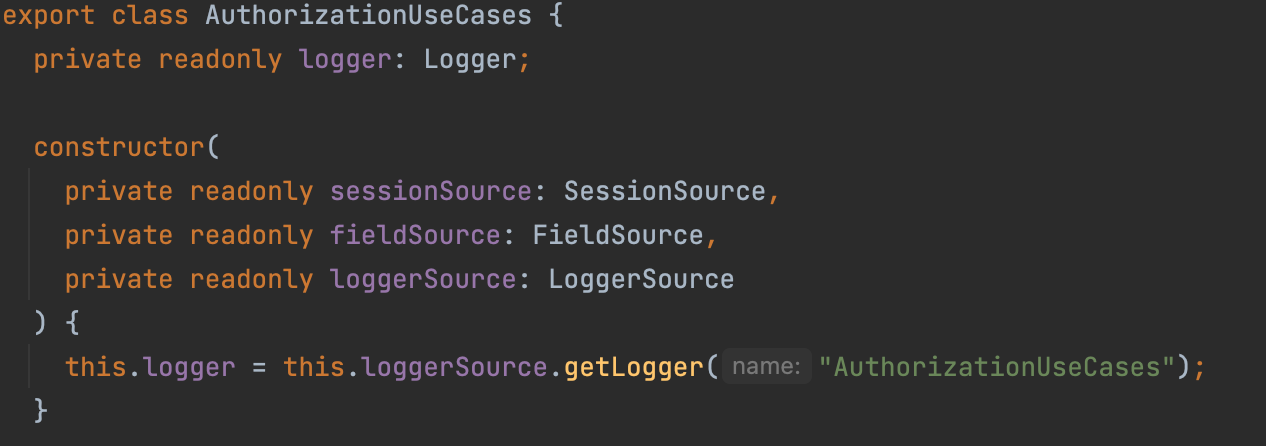
constructor injection
dependencies
const authorizationUseCase = new AuthorizationUseCase(
new SessionRepository(),
new FieldRepository(),
new LoggerProvider()
)do not know about dependencies construction
Take the provided instance without of taking care of how they have been created
Dependency Inversion, or DI
- High-level modules should not import anything from low-level modules. Both should depend on abstractions (e.g., interfaces).
- Abstractions should not depend on details. Details (concrete implementations) should depend on abstractions.
https://en.wikipedia.org/wiki/Dependency_inversion_principle
export class ForecastsUseCases {
constructor(
private readonly meteoblueClient: MeteoblueClient
) {
}
public getHourlyForecasts(location: {lat: number, lon: number}): Promise<ExpectedResult> {
/*
* A lot of business logic here
*
*/
const result = await this.forecasts.get(`/multimodel-1h`, {
params: {
lat,
lon,
},
});
const forecasts = this.toForecasts(result.data);
/*
*
*
* A lot of business logic here
*
*/
return expectedResult
}specific to meteoblue...
export class ForecastsUseCases {
constructor(
private readonly forecastsSource: ForecastsSource
) {}
public getHourlyForecasts(location: {lat: number, lon: number}): Promise<ExpectedResult> {
// A lot of business logic here
const forecasts = forecastsSource.get(location)
return expectedResult
}
export class forecastsFromMeteoBlue implements ForecastsSource {
constructor(
private readonly meteoblueClient: MeteoblueClient
) {}
public getHourly(location: {lat: number, lon: number}): Promise<HourlyForecasts> {
//A lot of business logic here
const result = await this.meteoblueClient.get(`/multimodel-1h`, {
params: { lat, lon },
});
return this.toForecasts(result.data);
}interface ForecastsSource {
getHourlyForecasts(location: {lat: number, lon: number}): Promise<HourlyForecasts>
}Easy to change
Switchable
ex 1 : Switching deps
UserMysql
UserAPI
UseCase
Source
New source without changing the use case
ex 2 : Easy to unit test
sql adapter
In memory
UseCase
Source

Unit Test
- Test by use case
- No mock in test
- Ability to test effect (ex: insertion, read...)
- No Implementation details coupling
- ....

Nest framework concept used
Needed dependencies
Say here how to build your dependency
Give your dependency to nest DI (dependency injection)
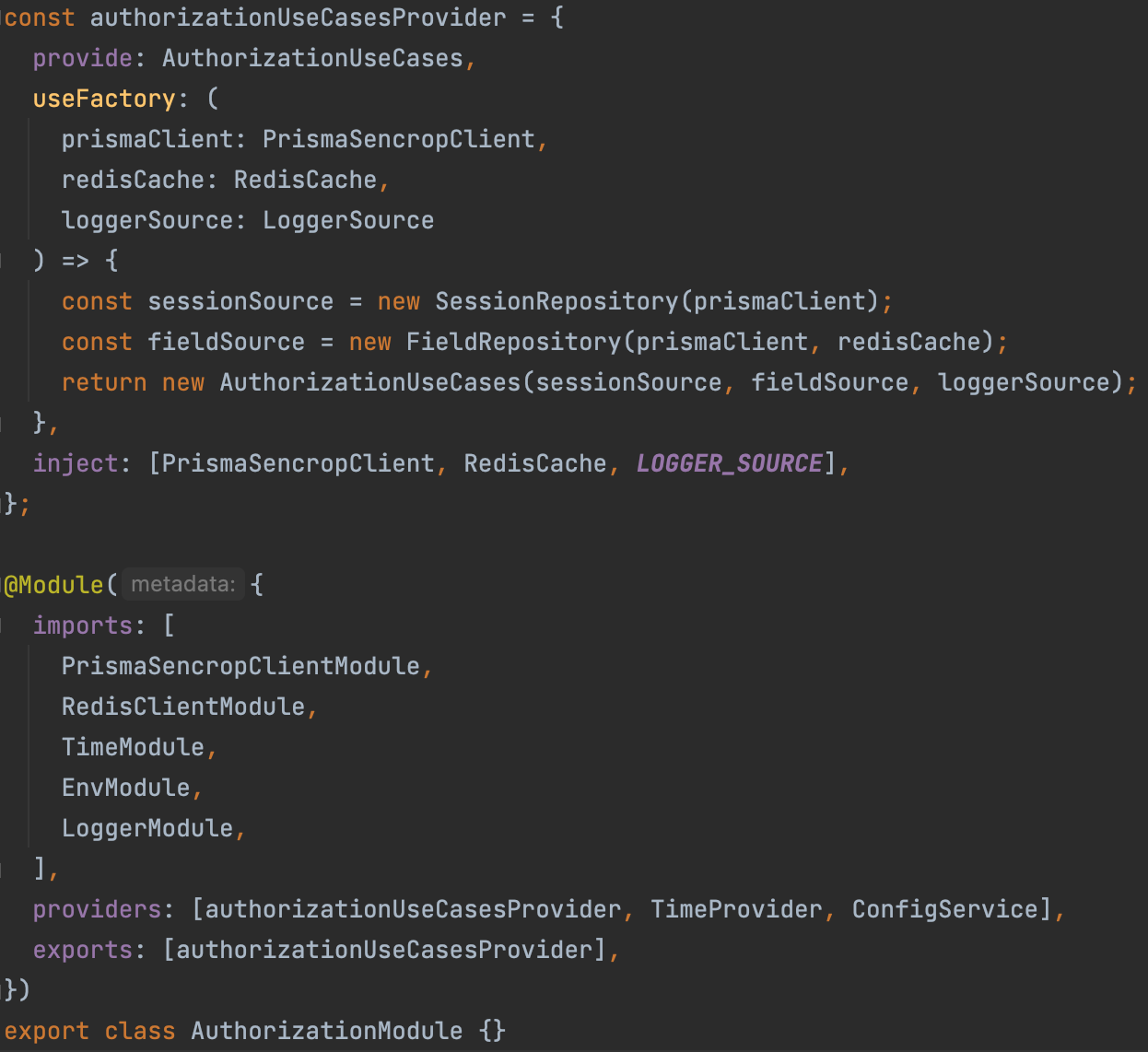
How to make a dependency injection ?
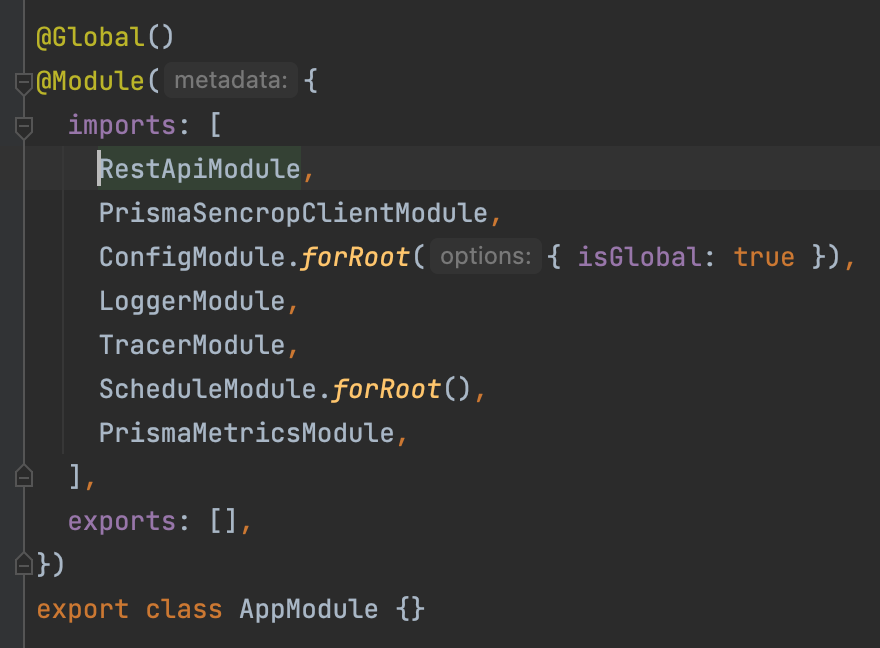
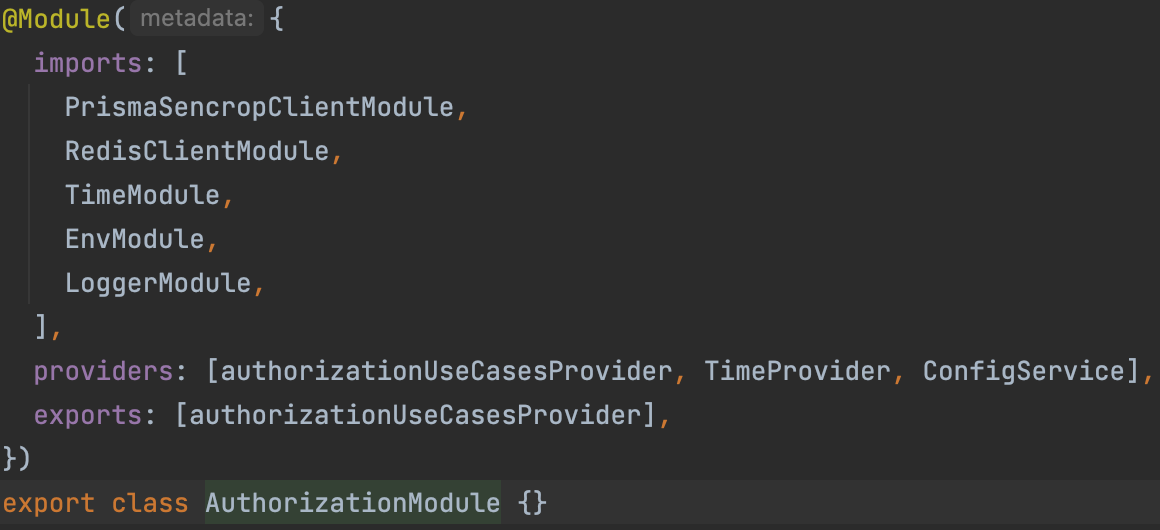
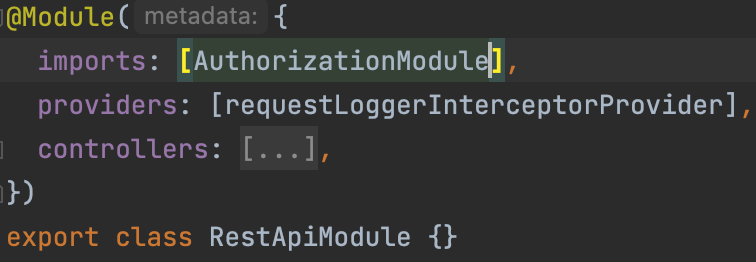
async function boostrap() {
NestFactory.create(AppModule)
}main.ts
app.module.ts / Root module
rest-api.module.ts
authorization.module.ts
@nestjs/common
Module : create scope/isolation and manage dependencies (reuse etc...)
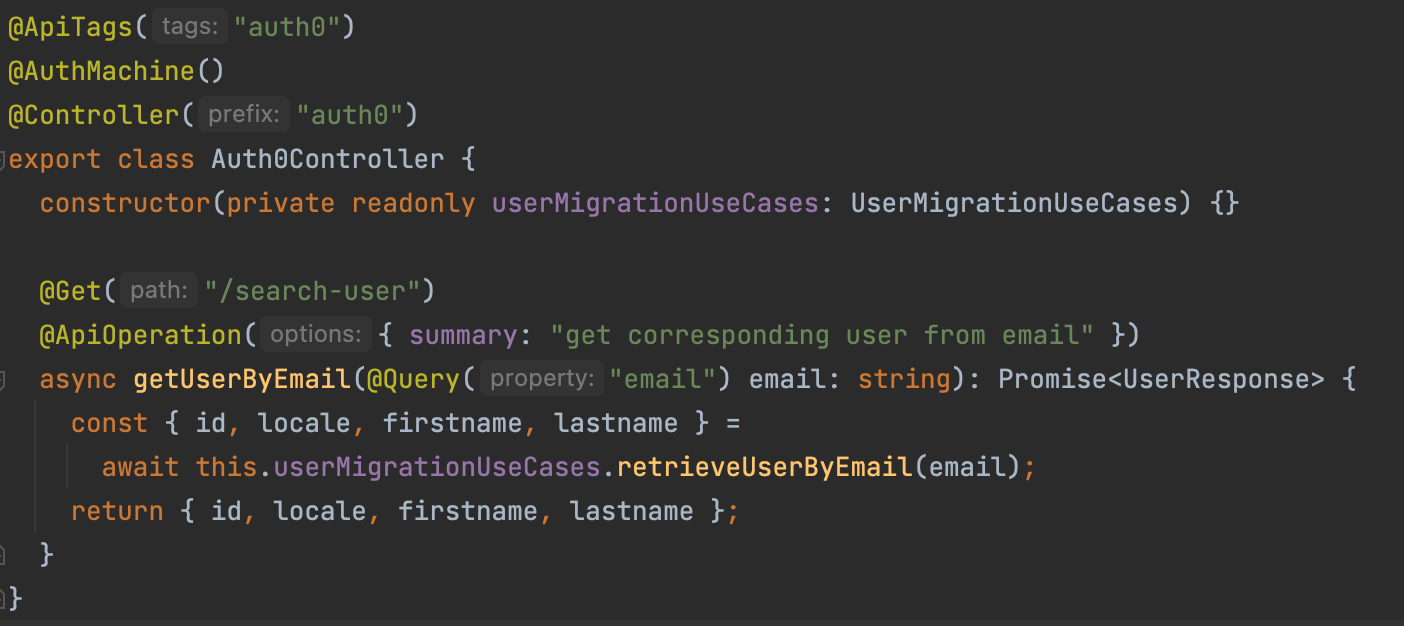
Decorators : Controller / Guard / Route
@nestjs/common
How nest could help me to connect with the outside world ?
How do i apply same logic accross all requests ?
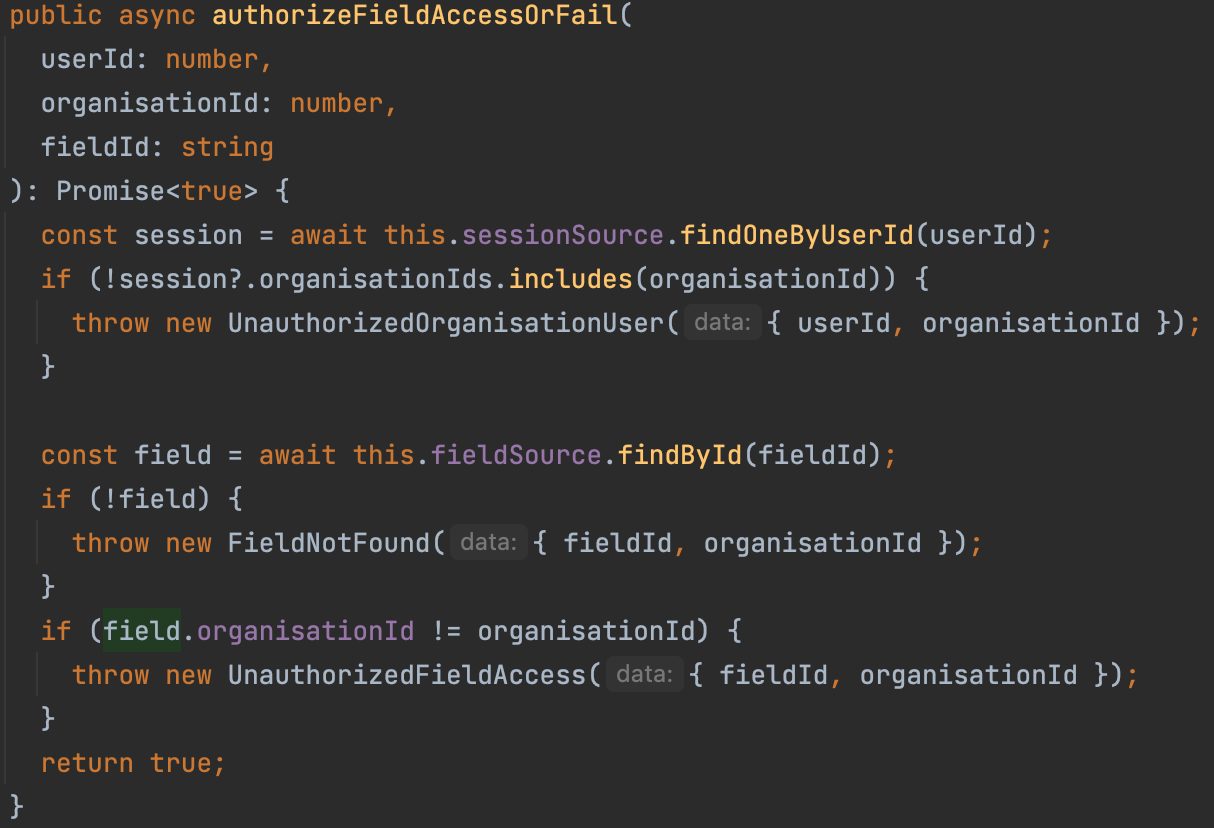
Guard : CanActivate implementation



Implementation example
Demo Ready
Delay technical choice
and having a working software quickly
by using an in memory source
API
(not ready)
wich DB ?
standalone app
🤔
🤗 🚀
Where do i put my egg in nest ?
Where do i implement my feature ?
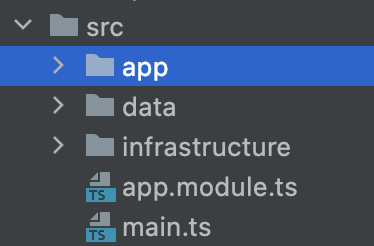
1 - first in "app" : to implement your sencrop app related use-cases
2 - then in "infrastructure" : to connect with the external world
How to develop my first feature ?
How to start my first implementation ?
1 - Specify your use-case :
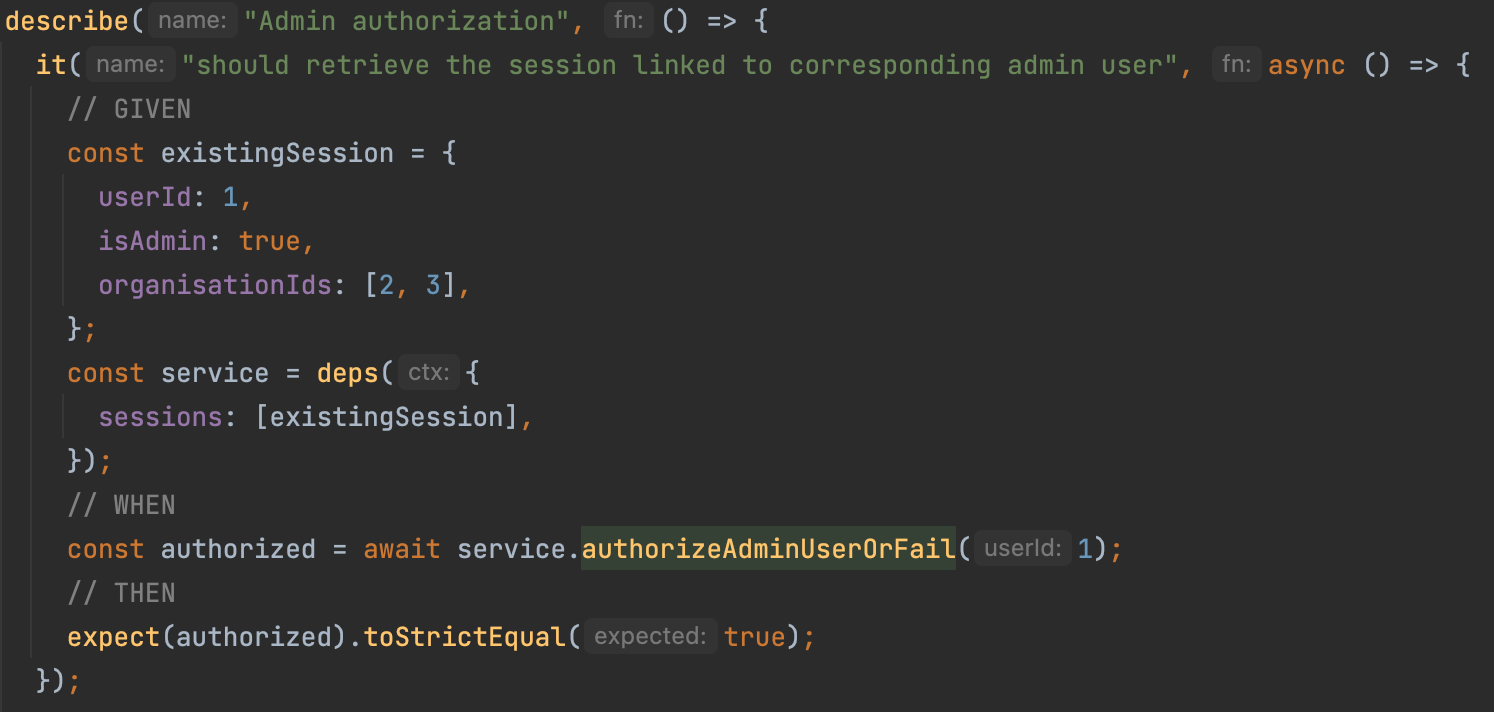
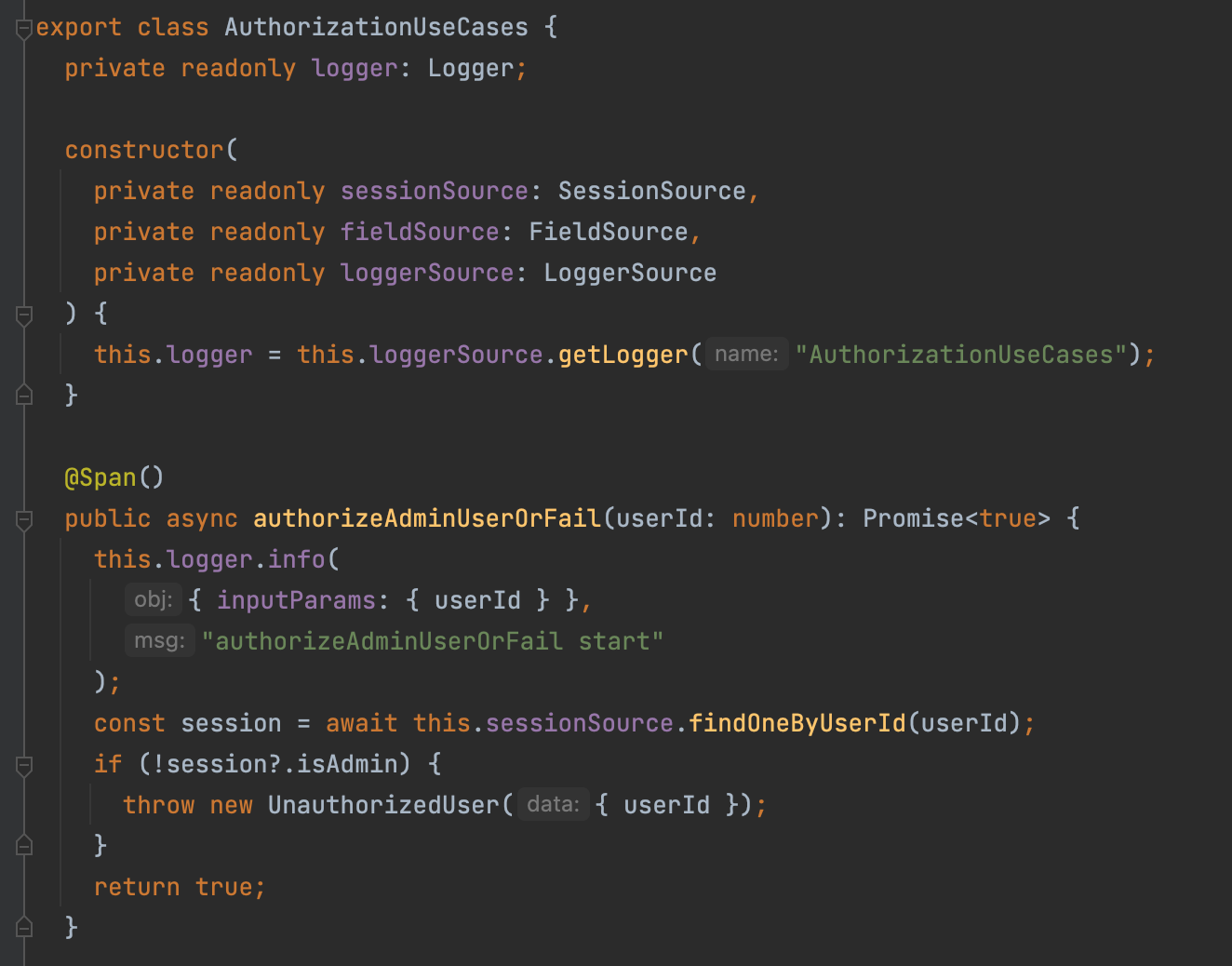
authorization.use-cases.spec.ts
authorization.use-cases.ts

session.in-memory.ts
Make a PR 🚀
2 - Connect it a real world source
export interface SessionSource {
findOneByUserId(userId: number): Promise<Session | undefined>;
}
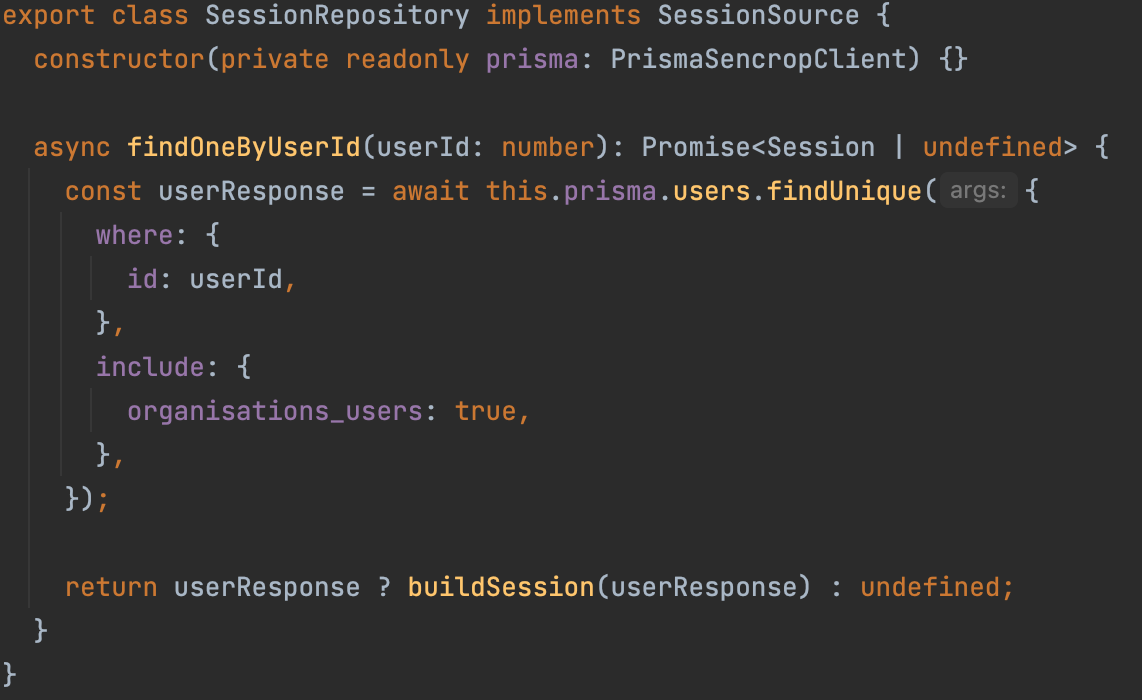
authorization.use-cases.ts
session.source.ts
session.repository.ts
Make a PR 🚀
3 - Make it available for an external usage

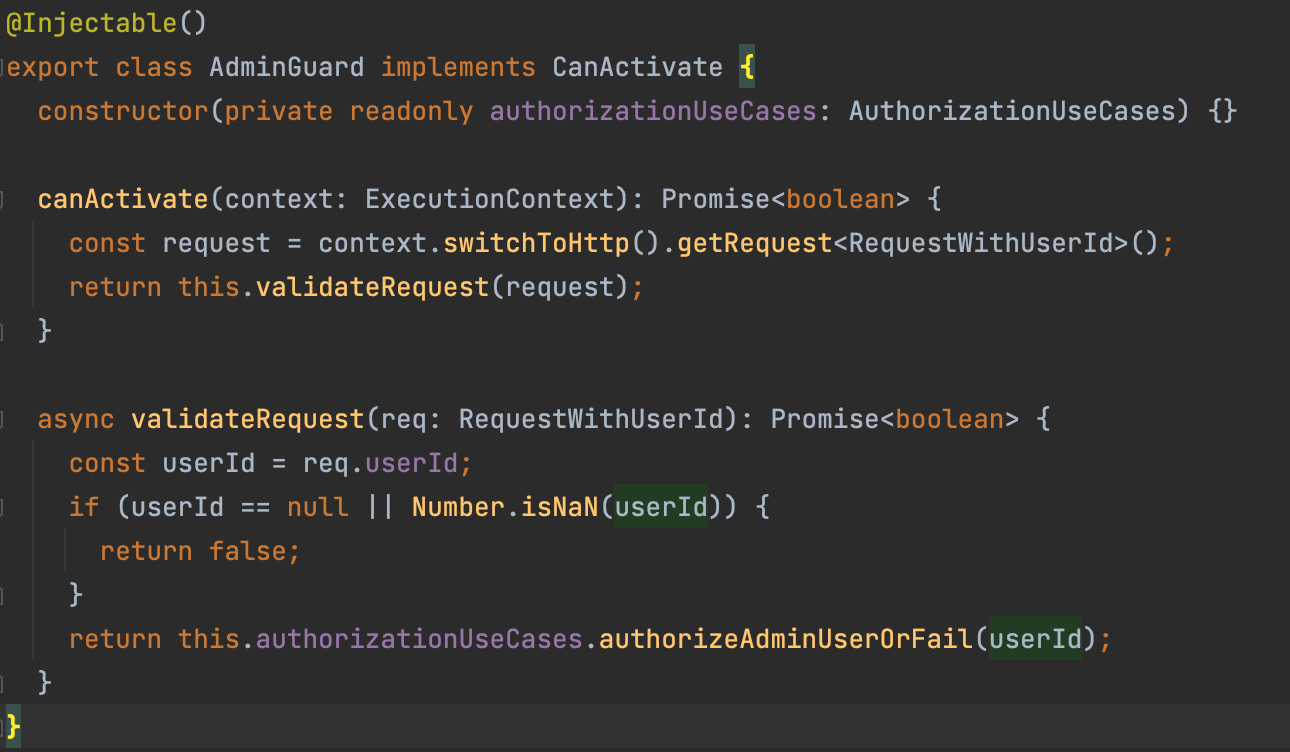

a - Export
b - Import
c - Use

authorization.module.ts
rest-api.module.ts
admin.guard.ts
Make a PR 🚀
Benefits
Readable Structure
E2E Ready




Fast E2E on CI => available on every commit
First increment to E2E test
Using E2E locally and on CI without DB !
Second increment to E2E test
Using E2E for release by just switch deps
Modulare software
Domain A
Domain B
Domain C






- Reuse of services (!= use cases)
- Independant or sharing dependency (with nest)
- Runtime "private package" emulated
Pitfalls
Abstraction

Hopefully we had a refactorable code !
#thxCleanArchi
#thxTestByUseCase
3 months to remove the bad abstraction...
Abstraction
duplication is far cheaper than the wrong abstraction
prefer duplication over the wrong abstraction
What we learn ?
Our story in video :
Use-case usage
By reusing use-cases we had:
- understanding issues
- Testing issues
- Perfomance issues
- A UseCase should the most independant it can be
- A UseCase is not a service, it's the entry point to the domain layer and it might orchestrate several service...
- Avoid useCase reuse if you can
NestJs, DbLib, ApiLib
Avoid NestJs or over tools (lib) interference with you business because it will increase the complexity
One update can make you change a lot of code, be careful
(so avoid it)
Use some trick like Dependency Inversion to do not depend on them...
Source/Port
By Making too specific "queries" you might put business on it
Ex:
SELECT u.name as universe_name,
MAX(case when (c.scheduled_day >= $date) then NULL ELSE c.scheduled_day end) as last_shoot_date,
MIN(case when (c.scheduled_day <= $date) then NULL ELSE c.scheduled_day end) as next_shoot_date
FROM ad_universe u
LEFT JOIN ad_campaign_universe cu ON u.id = cu.universe_id
LEFT JOIN ad_campaign c ON c.id = cu.campaign_id OR c.domain = u.domain AND c.all_universes
WHERE u.domain = $domain
AND c.enabled
AND u.enabled
GROUP BY universe_name
By Making too CRUD "queries" you might:
- - Introduce coupling to attribute you do not need
- - have perfomance issue (ex: blocking constraint with transaction)
Ex: update(user) but the use-case just want to update one field here...
Transaction
We had perfomance issues by using:
- Business transaction
- Too strict transaction mode
So... Think twice before adding a transaction...
Think twice before adding a transaction !!!
Keep the transaction in the adapter side or be careful
Dependencies
We have some cyclique dependencies issues between :
- Files (import)
- Classes
This kind of pb is hard to debug !
We have avoided it by :
- cyclic import detection
"circular-deps:find": "npx madge --circular --extensions ts ./src/"
- using only required dependency (ies?)
- Avoiding import between domain context
- Avoiding unused export :
"ts-prune": "npx ts-prune",
In memory
no business responsibility
serviceA()
doExternalCall()
function serviceA(n) {
doExternalCall()
}function doExternalCall(n) {
// complex call orchestration
// complex sql Request
...
}behaviour tree
}
PB business responsibility delegated to the integration part
Integration part
business part ?
}
PB complex integration test needed
Moving business responsability
serviceA()
doExternalCall()
function serviceA(n) {
// business logic
doExternalCall()
}function doExternalCall() {
// simple sql or api request
}behaviour tree
}
simple integration test
Integration part
business part
}
No Business responsibility
delegated
Moving business responsability
serviceA()
doExternalCall()
function serviceA(n) {
// business logic
doCall()
}function doExternalCall() {
// simple sql or api request
// here external call
}behaviour tree
simple unit test
Integration part
business part
}
In memory state
function doInMemoryCall() {
// simple logic
}How we do it ?
1 - Looking at article, video(s), book(s)
2 - First draft with standalone mode
Clean Architecture Book

3 - Structure choice (how to reuse)
4 - Testing with inMemory
5 - Modularization
... - ....
How to manage errors ?
1 - Manage business error in the use-case not in the adapter
Ex : findUser(id: string): Promise<User | undefined>
not : findUser(id: string): Promise<User>
2 - Always give the initial root cause (use cause params)
3 - Always throw error after a try catch or log an error
4 - Always bind it to a HTTP Error (if not -> 500)
5 - Observe your error (trace, logs...)
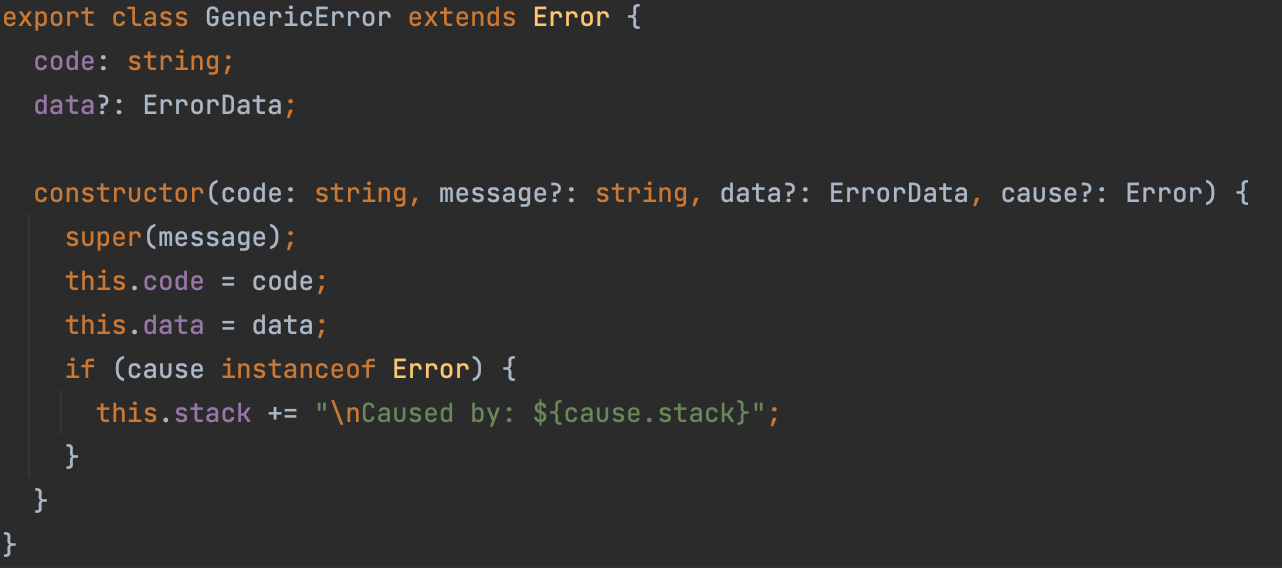
Errors best practices
Business Errors


Some naming and definitions
my-use-case.use-case.ts
my-source.source.ts
my-controller.controller.ts
my-module.module.ts
my-guard.guard.ts
my-service.service.ts
my-client.client.ts
my-mapper.mapper.ts
my-model.model.ts
my-source.source.shared.ts
my-unit-test.test.ts
my-unit-test.spec.ts
my-integration-test.itest.ts
my-type.type.ts
my-adapter.[adapterName].ts
my-db-adapter.repository.ts
my-adapter.[adapterName].ts
my-local-adapter.local.ts
my-in-memory-adapter.in-memory.ts
my-type.decorator.ts